Self-Fragmentation & the Sediment of the Past
Encountering the Self and the Work as Personal Archaeology
Introduction
Across several recent interviews, workshops, and talks that I have been invited on, I often used the analogy of archaeology in order to explain how I do my narrative writing and game design. This article is an attempt to compile my thoughts on the matter at length, for the sake of archiving my words, and also to provide a means for other folks to know what I spoke of, as they were often spoken in venues that were not open to the wider public.
I have to say, though, that I hesitate to call this an article. Maybe it will be more like a blog post that I’ll attempt to order? A collection of thoughts and anecdotes? I don’t know.
Game design and creative writing as personal archaeology rose from responding to questions that I get asked rather often, albeit in different words depending on the speaker and the circumstance: “How do you write yourself as a person of color? How do you write your own stories? How do you deal with the burden of representation in your work?”
It’s important to ground this rubric of mine within a specific context: my identity as someone who is simultaneously queer raised Conservative Catholic, a woman born - as every woman is - into spaces defined by the patriarchy, a person of color in white spaces by merit of being born Filipino, very recently diaspora for the second time in her life, and the product of a country with a heavy legacy of colonization. In this sense, what I’ll describe below may not be applicable to you. But if any piece of it can resonate regardless of your own subject position, then I’m glad for it.
As a final note, I’d like to state for the record that I am not an archaeologist by any means - not even a casual one. Apologies to any actual archaeologists in the room who will walk away from this article feeling like I butchered your praxis. I mean no offense.
The past is a shore rendered so inaccessible to the present self, it might as well be mythical.
When I was doing my literary criticism classes back in university, we naturally dwelled on postcolonial theory. I have long forgotten which theorists or essays spoke of this concept that I’m about to go into, and I’ll profusely thank anyone who could point me in the right direction after reading this post, even if the direction happens to be, “I have no fucking idea what you’re talking about, Pam, maybe your professor said this shit, or you mad ladded yourself there and came up with it all on your own.”
Ahem. At any rate, I fell in love with the description of a formulating a colonized nation’s identity being likened to sedimentation and erosion. Upon the intrusion of the conqueror, whatever mountain, hill, rock, coral reef, or riverbed that the conquered country was, is obliterated by the fires of conquest. Every new intrusion is yet another obliteration, another legacy ground to dust. Every attempt thereafter to liberate the country - successful or no - is yet another obliteration of a different sort, as it still requires an unmaking of “the past” and a reforming for the concerns of the present.
It would be too tempting to conclude that the conquered country disappears whenever it is subsumed under the weight of its conqueror, and that it disappears yet again when it is freed by its people, who are eager to erase every trace of their former conqueror’s touch from its skin. However, the truth of the matter is that the country transforms: in the hands of the conquered, in the hands of its liberators. It becomes a new edifice made solely of the sediment from many other formations before it, held together first by external forces who seek to define it for their own means, then by the mere passage of time.
As products of a colonized nation, every citizen thus becomes a colonized body: a microcosm of the process we described above. Even though the colonizers are long gone for many of us, we are defined by the violence of their conquest - a sort that is, many times, tragically emulated by our own countrymen, who either learned by example or took advantage of the broken systems that our old conquerors left in their wake. We are formed by the sediment of histories told by often rife and inconsistent voices, burdened by legacies marred by holes and unanswered questions. The gaping hole of a perceived “lost identity” - the so-called “mother nation” or “pure shore” that our country should have been had the colonizers never arrived - is a yawning void that we are made to stare into every single time we deign to create a work that represents our people.
Nostalgia is my enemy and lover.
I don’t know how it is for other people with similar lived experiences to my own, but I view myself as a fragmented self. I am technically a whole person, with a body containing all the blood, sinew, bones, bits and bobs that a body should. But due to the accident of my birth as a daughter of the Philippines into the specific circumstances of my own family, a nation that wasn’t colonized not just once, but five(!!!) times in its history, I am never fully permitted to be whole on my own terms. At any given point in time, I am:
Filipino by passport and ethnicity, but never Filipino enough.
Diaspora, because I also hold a Canadian passport. A prize hard won by my parents for me and my five brothers. People in my country will say any one of the following things: that we are heroes for sending money back home, that we have betrayed the cause for abandoning our country, or that we are lucky to have gotten out while we still could. People in my new country will often say, in response to learning that I am Filipino, that they “love Filipinos! (Or our food.) By the way, I have a Filipino friend…”
A woman, an existence of contradictions: pure and innocent flower, vixen whose very existence is temptation.
Queer, something that only becomes a human being at another’s convenience.
Many of these fragmentations of my Self are burdened, I’ll note, by inherited nostalgia. Someone, somewhere, always wants me to BE something for my country, or DO something for my country. I am told that because I am Filipino, surely I want to connect with something/somewhere authentic - something that accurately represents The Philippines and The Filipino.
The same could be said with respect to my Womanhood, my Diasporic position, my Queerness. Never mind that such identities are not monoliths, that there are many different shades behind Woman, Diaspora, and Queer. It is easier, especially for those who are content to stare at little else beyond their own noses and navels, to reduce things to simple, palatable, singular concepts. Sometimes, we do this as a matter of survival against the status quo. But most days, it’s merely human nature to view the Other and seek to trap it within boundaries acceptable to our perception of reality.
So, chasing nostalgia becomes the first thing I learn to do as an artist: searching to encapsulate that unknowable, unreachable Something through my work. Worrying, constantly, if I am succeeding, or if I am falling short in the eyes of all the people who expect “better” of me as Filipino/Woman/Diaspora/Queer - yet shift the goalposts, for they are as burdened, in their own unique ways, by the nostalgia they have inherited.
Okay, but you were going to talk about Archaeology.
And here we are. I’ve long known the futility of perfect representation. It has never been something that has kept me up at night. Sure, when I am called upon to design or write something “Filipino-inspired”, I will occasionally devote more brain and heart space than I probably ought to towards worrying what the faceless masses from my country might say when they don’t see enough carabaos, mangoes, Jollibee and jeepneys in my work. But, I have resolved to be genuine to myself, in the hopes that at least one person who identifies as Filipino might encounter my work, and see something they can relate to in it.
The best way to do this, in my eyes, is to treat the differing aspects of the self as artifacts in an dig site. First, the dig site in itself is a present place that was likely somewhere or something very different in the distant past. Everything about it in the now - the current weather, its overall climate, the features of the land, the horizon, the color of the sky - is alien in light of what it used to be. You can only make educated guesses about the conditions, where even the most rigorous interrogations will lack full precision.
Second, there are the artifacts around you. They cannot speak to you, at least not with words that you can understand - and your own words that you will use to describe them are present day words, informed by present day concepts. Anyone that could have explained the truth of things is long dead. You are often left with the scientific inaccuracy, yet genuine evocativeness, of your own tactile sensations and impressions when you handle these artifacts. You can, of course further inform your conclusions on what these artifacts where/what they mean/what they did with research, but once again: even conclusions made by the most rigorous interrogations are not definitive.
Third: we consider who we are and what we can tangibly reach for and describe BEYOND the archaeological dig site of our fragmented self. Perhaps we look towards the stories we were told by our elders: the love story of our parents, the experiences of our aunts and uncles under a punishing dictatorship, the sacrifices made by our grandfather during the War. We might meditate on our own experiences: being the one middle class kid speaking English among Tagalog-speaking daughters of the elite in a school for the rich, telling your mother you may be bisexual and having her tell you that she will send you to a convent, walking through the doors of your 300-year-old ancestral home for the first time.
We also consider the sights, sounds, smells, and tastes we encounter. The heat of a punishing summer radiating off cracked concrete roads beyond the iron grill gates of your home in Metro Manila. The explosion of tangled roots of a balete tree eating up a sidewalk that the barangay has never thought to fix. A cacophany of horns going off during rush hour traffic - ineffectual protests, in light of the fact that not a single car will move more than an inch at a time. Sunrise by 6 AM, sunset by 6 PM; brilliant shades of orange, pink, gold, red. The many kinds of rain. Halo-halo, sinigang, taho.
That which was directly perceivable to us, and lived through, is genuine and authentic. I would argue such things are more genuine and authentic than an abstract idea of nationhood, national identity, and the “Filipino/Female/Queer/Diasporic Experience.” Furthermore, as we grow and our context expands, shifts, or transforms, the sediment of the new naturally coats the old, providing us with deeper insight or a changed perspective upon the familiar - provided, of course, that we continue to interrogate the artifacts around us, and our own experiences.
Your writing represents your position because YOU are writing it.
This is a lesson we must learn for ourselves, over and over and over again. Eating this truth morsel by morsel, chewing on it, swallowing it down - that is what we need to do. Reject the idea that, through some flawed turn of phrase or differing word choice, you have failed to be “authentic”, that you may not Filipino/Woman/Diaspora/Queer enough in your work. All you are, is yourself, and what you can offer. There is something freeing and powerful in being small and fragmented.
You will stumble, and you will make mistakes. You will, at many points, be desperately unhappy with your own interpretations of the truth you are speaking to. Others may also take it upon themselves to pick at your work, quibble over your words. Let them. Mind you: maybe they have something good to say, in their attempt at obliterating your creation. Because you are but one fragmented Self, you have your limitations. There will always be things that you will fail to understand, and there will always be things you have reached for that are not actually yours to take, or write about. Let the wounding be instructional. Grow within your boundaries, even as you attempt to expand your horizons. And, respect the boundaries of those around you. Learn from their own unique positions. Share, and let them share things with you too. And afford them with respect when others tell you, “No, this is not yours to have. This is mine.”
More often than not, however, if you have truly attempted to write not from a position of attempting to encompass the Identity as a whole but merely Filipino/Woman/Diaspora/Queer as only you can know it, it is noise. Your truths are sacred and untouchable, and you can speak to them as you please.



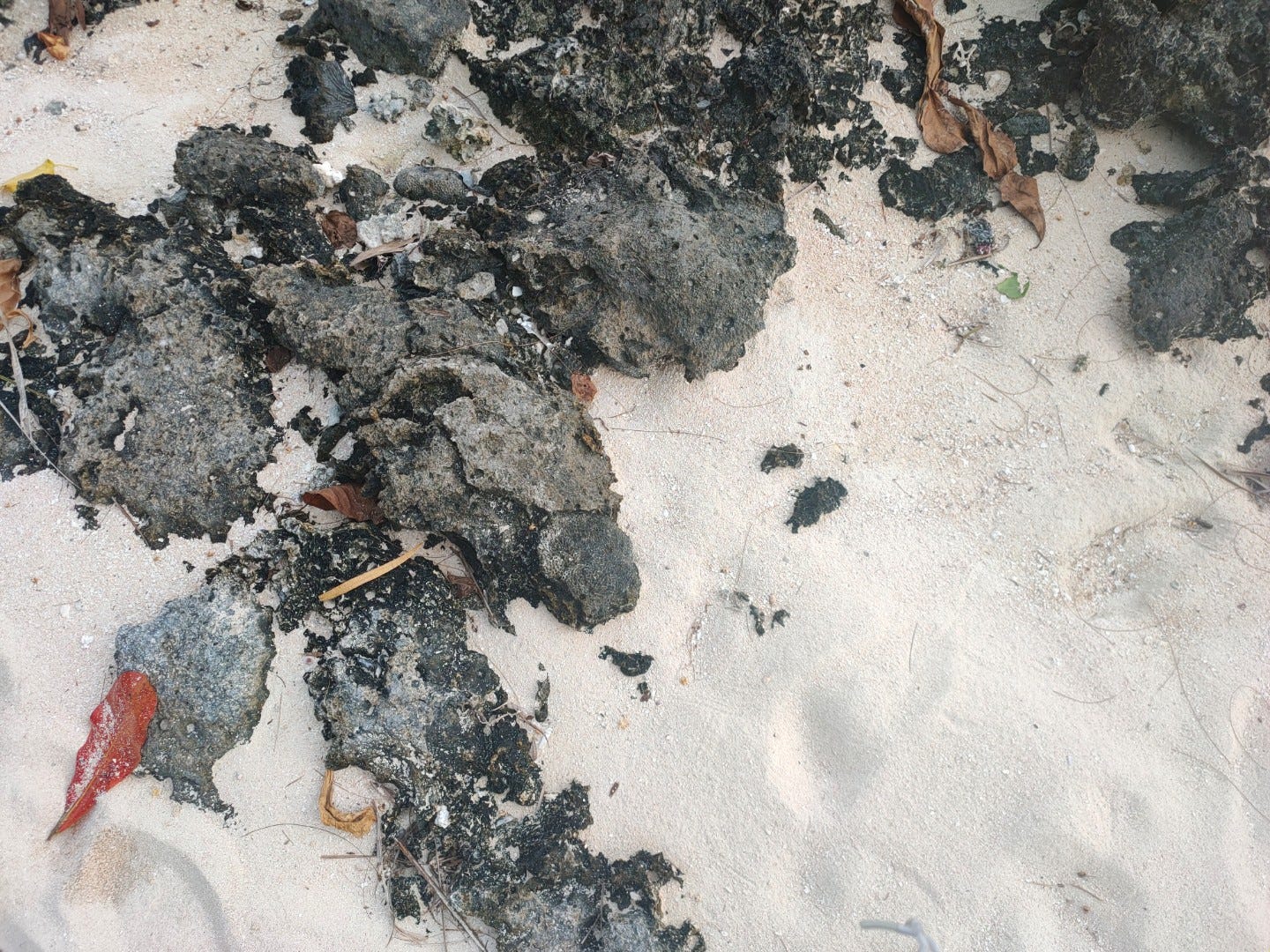
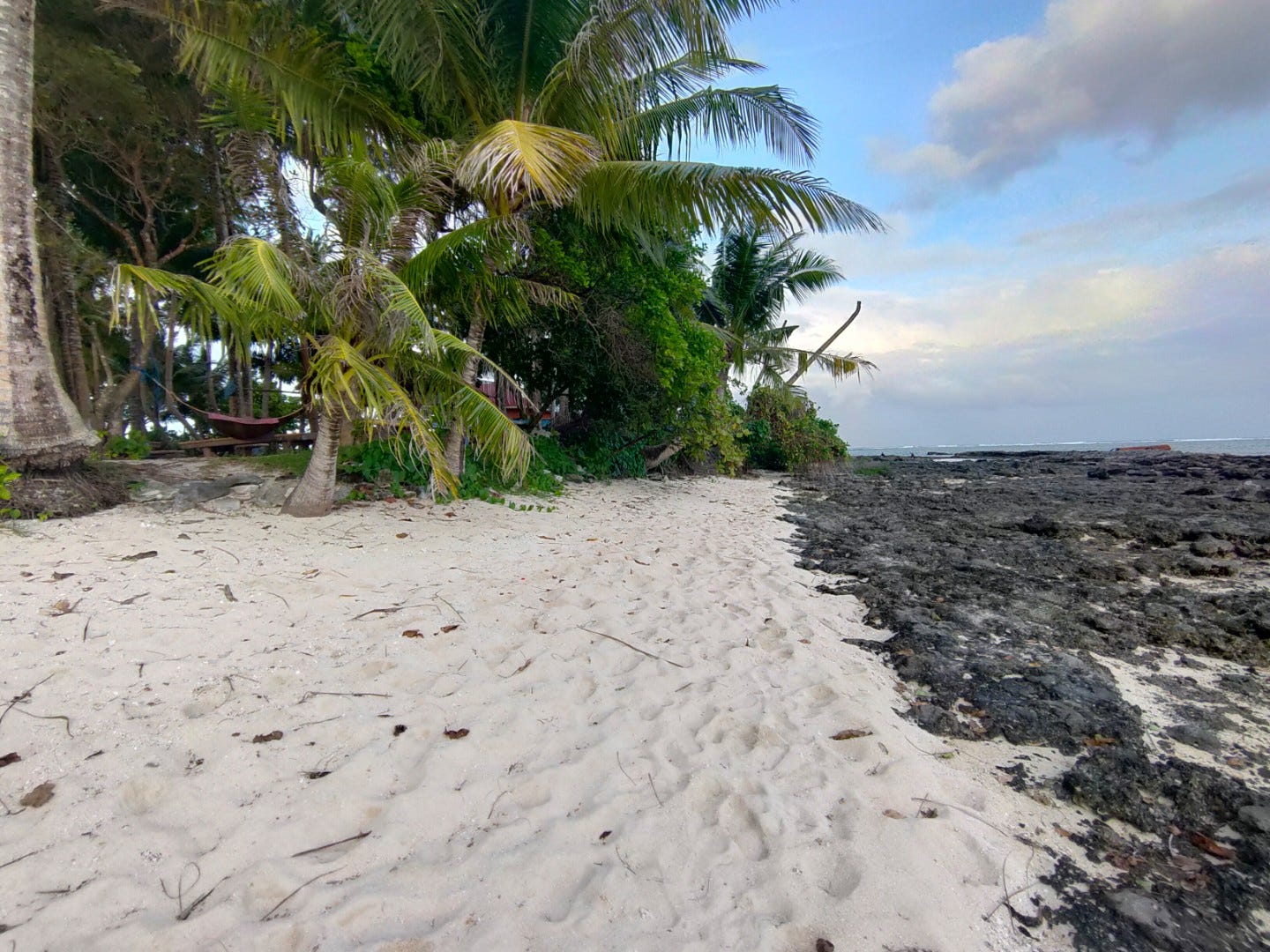
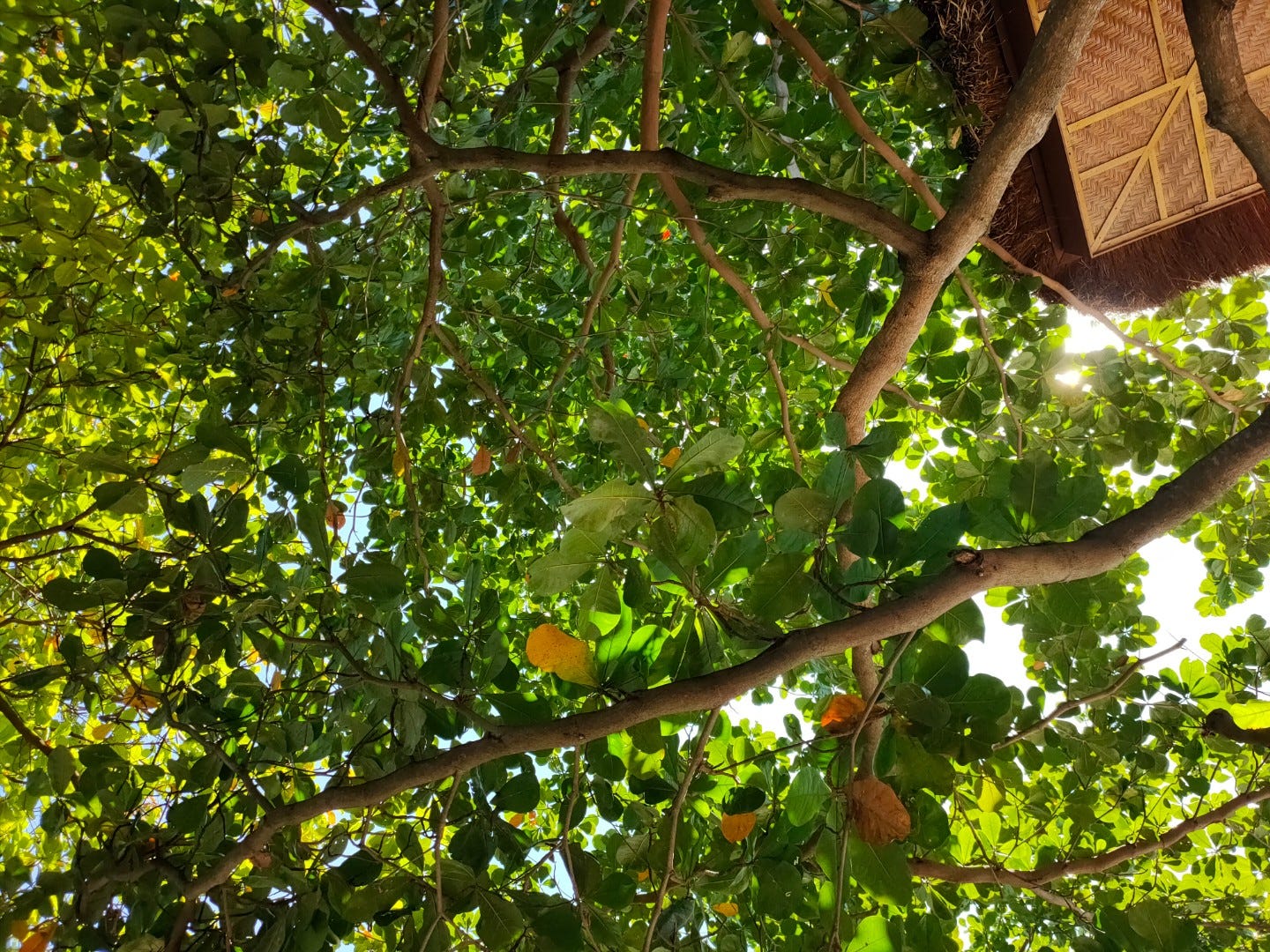
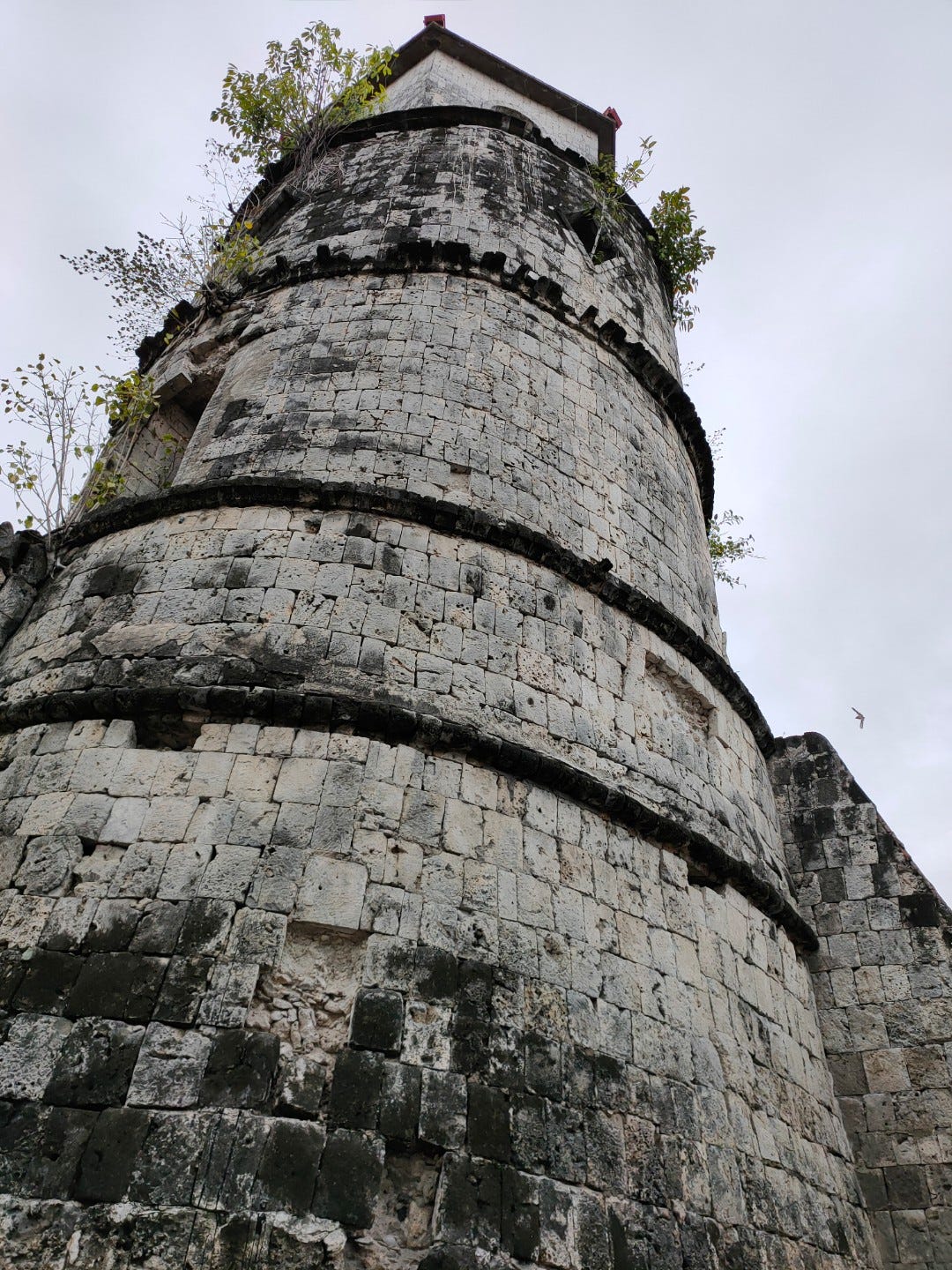
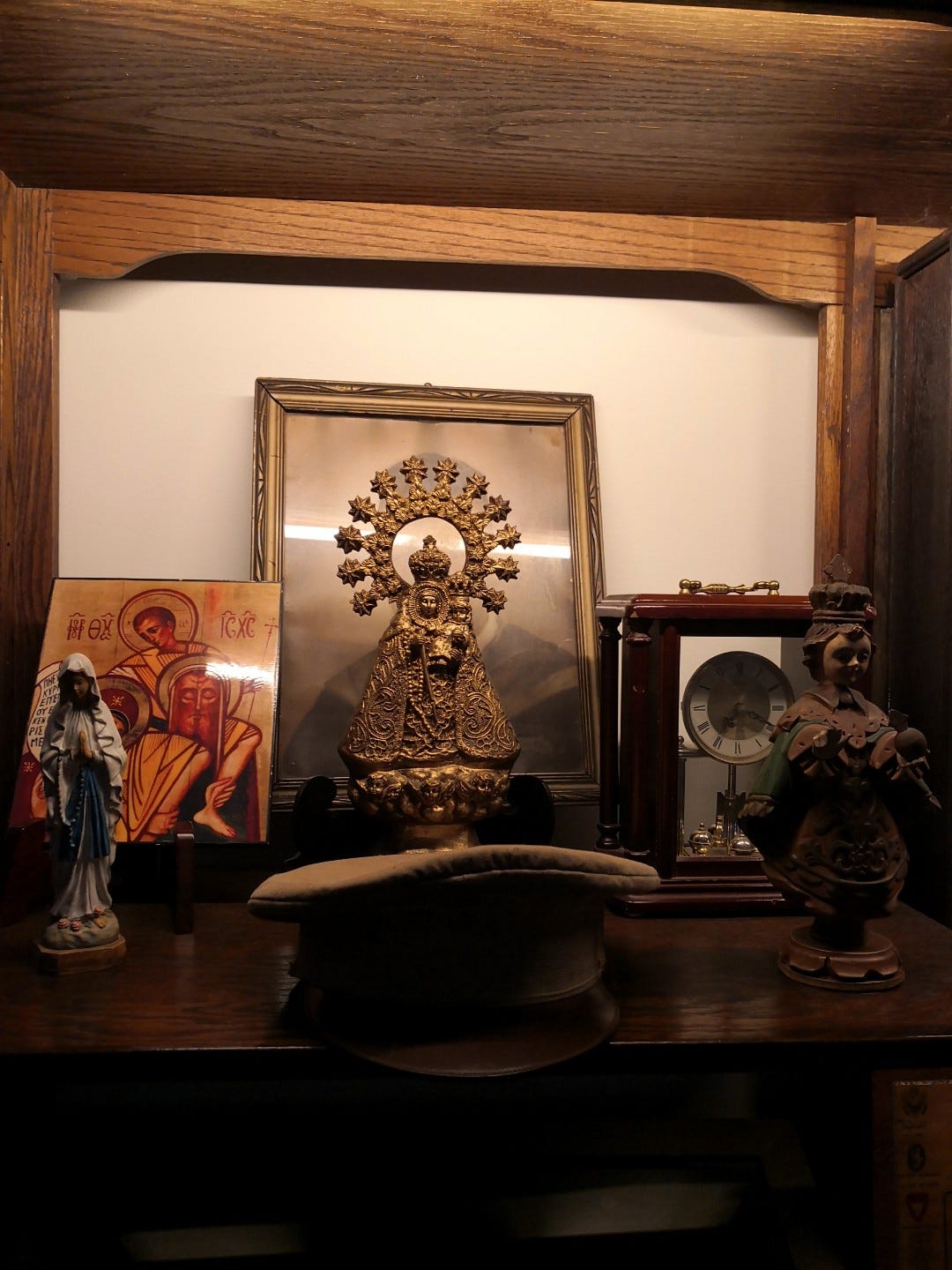
Beautiful essay, Pam. I see a depiction of disassociation in your archaeology metaphor that feels so familiar to me, at once heartbreaking and comforting. It's deeply melancholy to think I'll never be able to truly understand my past self and will continually justify and reinterpret his actions in ways that are completely detached from what felt true at the time. But it's also comforting to imagine myself as a place - one that has existed for a long time and will exist long into the future, past my death, even if only as a misunderstood and poorly maintained record.
A thought I think you imply but that I'd extend the metaphor to explicitly: making a piece of art in the first place feels like an act of fragmentation, not just because of the way we're all imperfect like you write about in your conclusion, but because there's no way an artist could ever put their entire self into a single work. One piece could never even sum up my experience of a single identity. You make a thing, you do your best to be authentic to it, and even if you achieve the impossible task of making it perfect, it will still just be one artifact on the beach of who you are at any given moment.
This was a beautiful read! Thank you for taking the time to express all this. As a cis-male person, even though I am from a latino country, I can only connect with some of the things you say, but it's always great to get to know what someone may be going through better. It certainly feels inspirational in a way as well, as we should be allowed to make mistakes and learn from them <3